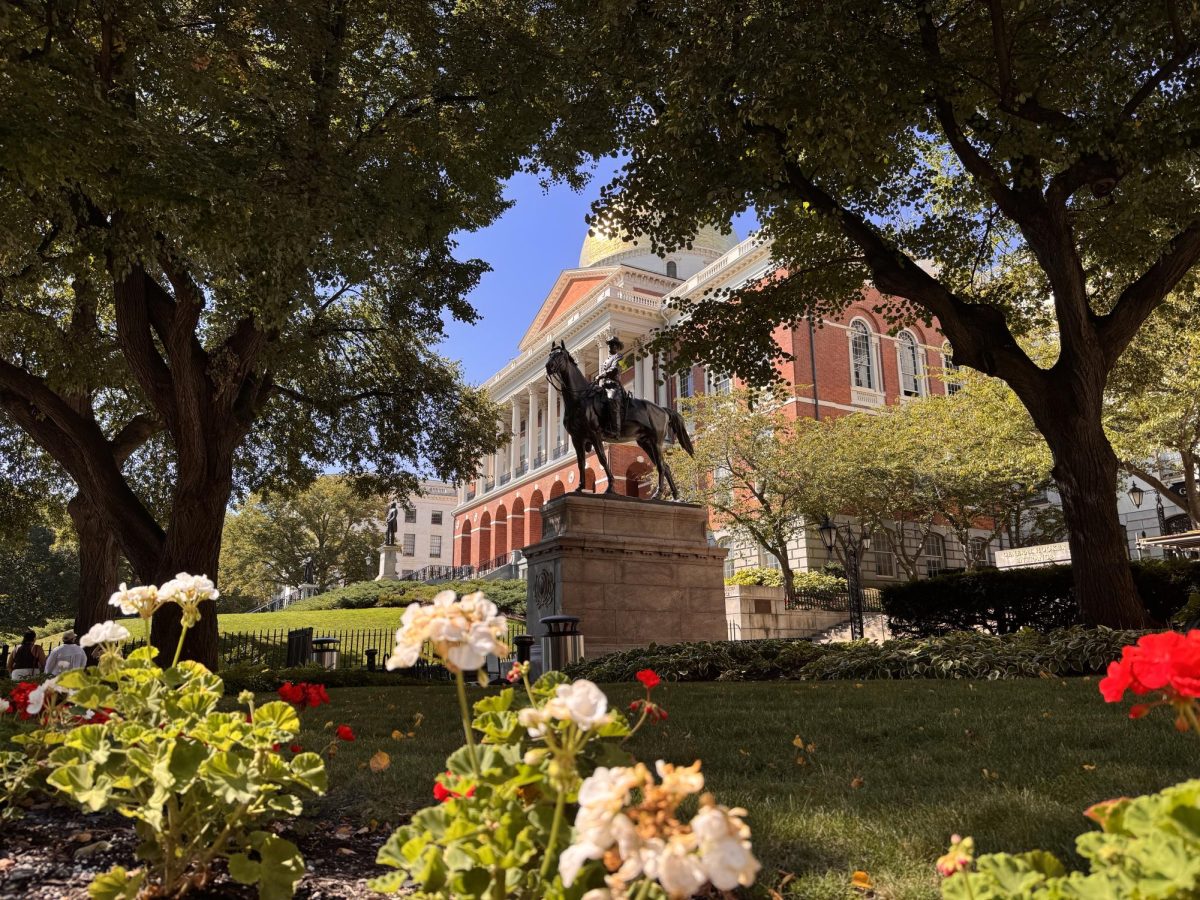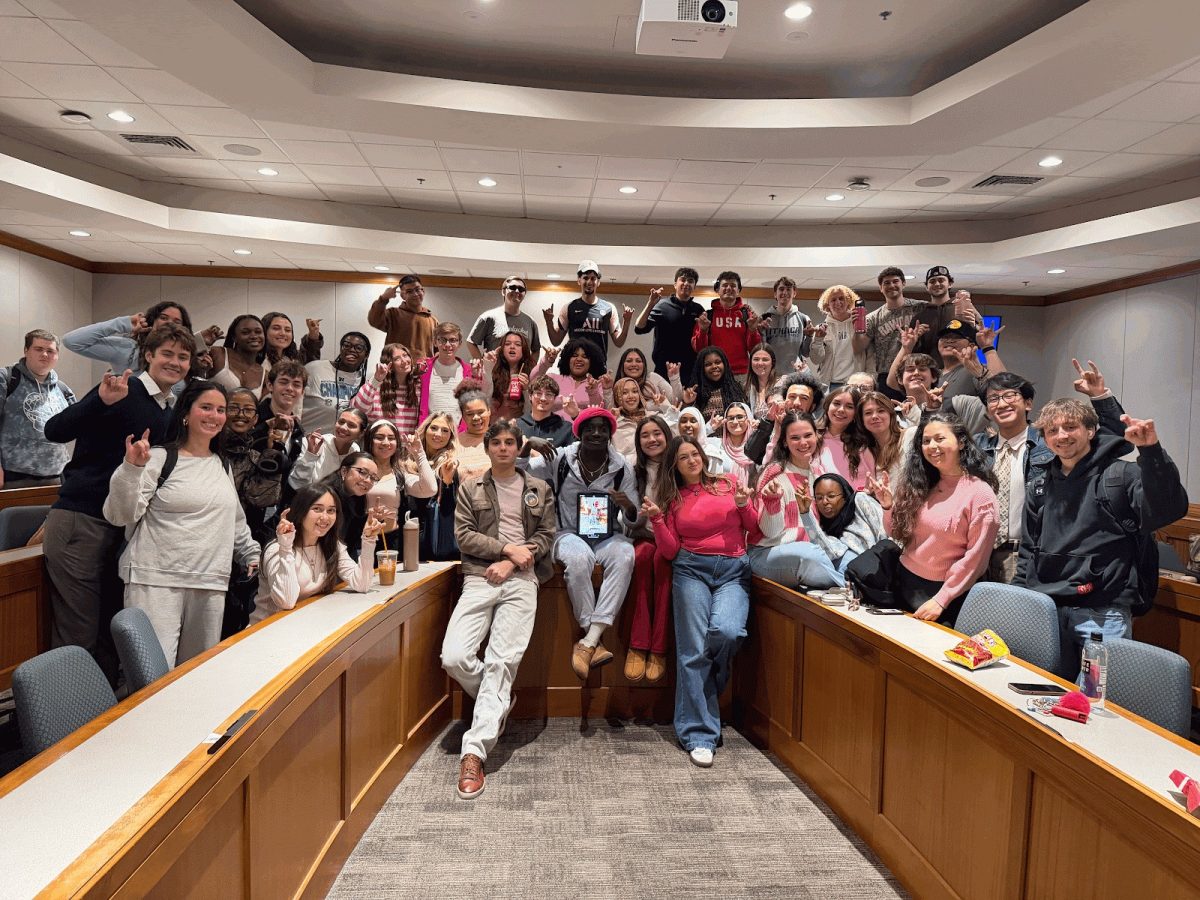The Trump administration’s “Compact for Academic Excellence in Higher Education” is the latest in the administration’s efforts to engage in higher education and persuade institutions to align with their vision.
The letter, sent out to nine universities Oct. 1, was addressed to Brown University, Dartmouth College, Massachusetts Institute of Technology, University of Arizona, University of Pennsylvania, University of Southern California, University of Texas at Austin, University of Virginia and Vanderbilt University. It was not stated what criteria was used to select the schools.
Seven of the universities outwardly declined the compact, while the remaining two provided no response.
In Truth Social post Oct. 12, Trump opened the offer to any American university that would be interested in signing on. As of Oct. 28, one institution has responded, The New College of Florida. The college said they have been in accordance with most of the policies outlined in the letter since 2023 and agreed to sign the compact.
Most responses from other institutions offered feedback on the demands of the compact while others declared that their institutions already aligned with the policies mentioned in the letter.
Part of this compact also included a federal funding advantage to universities that complied with the outlined policies. Though, not many details were released.
This is not the first time the administration has used federal funding as a bargaining chip in higher education. Earlier this year, the Trump administration froze $2.2 billion in federal grants to Harvard University.
Omar Acosta, a freshman economics major, said that the compact did not seem like an effort to cut unnecessary spending.
“[It’s] rather a malicious attempt to weaken those who threaten Trump’s power,” said Acosta.
Some of the major themes of the letter — international enrollment, merit vs. equity, and institutional neutrality — are representative of the larger conversation surrounding higher education and conversations happening at a federal level.
“We are not living in normal times,” said Acosta. “We [already] have to deal with the stresses of assignments, jobs, funding our tuition and now we have the government coming after us on top of that.”
There are eight bolded headlines in the compact that more of less align with the administration’s already well-established goals. One such requirement is a 15% cap on international students, reflecting the administration’s anti-immigrant sentiment.
The compact also states that signatories would put more effort into, “fostering a vibrant marketplace of ideas on campus.” This assumes that universities must allow ample space for conservative views at their institutions, which falls in line with Trump’s outspoken views on higher education as primarily hosting liberal agenda.
It also asserts that, “students shall be treated as individuals and not on the basis of their immutable characteristics,” indicative of the Administration’s persistent stance against DEI practices. However, there is an exception for “sex-based privacy, safety and fairness,” requesting that the universities accept the administration’s definition of gender and apply it to areas such as bathrooms and sports.
The bottom line presented by this agreement is, “institutions of higher education are free to develop models and values other than those below, if the institution elects to forgo federal benefits.” Specifying these benefits as federal funding for student grants and loans, research and international student visas.
Charlie Reyna-Demes, senior political science student at Suffolk, said that the themes in the compact play into deep fear and escapism.
“The administration has vilified and painted the picture that higher education and, in turn, academia is against the value[s] that they’re trying to put out,” Reyna-Demes said.
MIT was the first to reject the agreement Oct. 10. A letter from President Sally Kornbluth said, “the document includes principles with which [MIT] disagree[s], including those that would restrict freedom of expression and our independence as an institution.”
Other rejections came after a virtual meeting between the White House and presently unresponsive universities Oct. 17. The University of Virginia, also outwardly critical of the specifics of the compact, stated in a letter from Interim President Paul Mahoney that the existence of such contractual agreement, “will undermine the integrity of vital, sometimes lifesaving, research and further erode confidence in American higher education.”
Though this compact was directed at larger universities, many worry about the trickle-down effects that smaller institutions, like Suffolk, could face. The potential and current realizations of this, through Suffolk’s recent budget cuts, is on the radar of Suffolk’s Student Government Association according to SGA President Reyna-Demes.
“Generally, SGA does not have their head in the sand on these issues,” said Reyna-Demes. “If this can happen on a federal level, if this starts to happen on the state level, municipal level, where this kind of pressure [is] put down — that could hurt even a smaller school like us.”
As the current state of interaction between the government and higher education institutions is well understood by upperclassmen, it is also no secret to underclassmen.
Fortunately, it appears that this event also has the capacity to spark a desire to take action.
“[Students] shouldn’t just pay attention [to] national politics, they should pay attention to local, state, and even global politics,” said Acosta. “We as students need to unite and be the change that this country desperately needs.”
When Acosta reflected on what something like this could mean at Suffolk, he said it would feel dystopian.
“I hope that we would give them one hell of a fight. Suffolk University is a very progressive college. Suffolk was founded on paying it forward to [the] marginalized and less privileged,” said Acosta.
This hope seems to be validated through statements by Reyna-Demes in discussion about the very real cuts being faced by Suffolk in recent weeks and months.
“If we are not going to get a proper response from the [Suffolk] administration regarding these cuts, [that is] not going to be acceptable for the Student Government Association,” said Reyna-Demes.
This response would suggest that in the event of a larger, more national threat to Suffolk University, students would not back down.
The sentiment of standing up against an oppressive figure isn’t one just felt by Suffolk students.
“If there’s one thing Bostonians are proud of, it’s education,” Acosta said.
Reyna-Demes described the city as a “hub for higher education, and [I think] the politicians know that.”
Boston Mayor Michelle Wu has been an outspoken advocate for her demonstrated resistance to unconstitutional actions through her statement about ICE presence in Boston. With equal education at the forefront of Wu’s platform she provides residents with hope during these uncertain times, according to Rena-Demes.
This situation brings forth very important questions regarding federal power, especially regarding how it can shape the definition of academic excellence.
“A community is most prosperous when it is diverse. That may include differences in opinion. It is important to expose ourselves to things we are not used to,” said Acosta.
While this may objectively appear to match the intentions of the demands made by the compact, specifically those regarding a marketplace of ideas and free expression, many students and people in higher education worry that in actuality it does more to limit free expression and forces universities to conform in a manner that no government should be capable of.
















